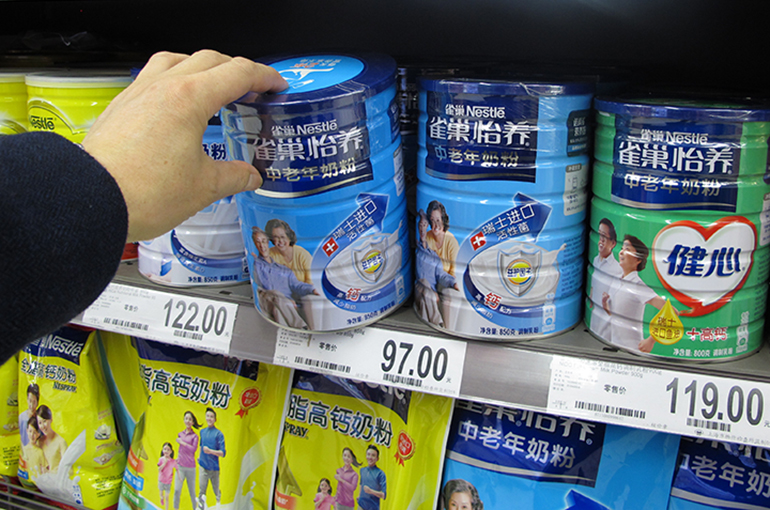 Chinese Demand Grows for Milk Powder for Middle-Aged, Elderly People
Chinese Demand Grows for Milk Powder for Middle-Aged, Elderly People(Yicai) Oct. 24 -- Demand is rising in China for milk powder for the middle-aged and elderly amid a rapidly aging population and a declining birth rate.
Sales of milk powder for these age groups soared 57 percent to CNY110 million (USD15.1 million) in the first half from a year ago, according to a report published yesterday by China Insights Consultancy and the Laboratory for New Living of the Middle-Aged and Elderly based on data from Alibaba’s online shopping platform Taobao and its affiliates.
Total milk powder sales in China rose 16 percent to CNY1.4 billion (USD191,6 million) in the period, while those for students and women, once the two fastest-growing categories, tumbled 313 percent and 35 percent, respectively.
“The infant milk powder market is sluggish this year, but sales of milk powder for the middle-aged and elderly are better than expected,” a salesperson at a Chinese milk powder company told Yicai.
Compared with previous years, when products aimed at the elderly usually sold poorly, demand is surprisingly strong now, she added, noting that her biggest single sale this year was 900 cans, which was rare in the past.
Dairy companies have hiked investment and advertising for adult milk powder this year after the infant formula market shrank, said analyst Song Liang. Milk powder for the middle-aged and elderly is also becoming accepted by more Chinese because those born during the baby boom of the 1960s and 1970s, and who were better educated than their forebears, are now in those age groups.
Special milk powders targeting health issues among these people, such as joint problems and low immunity, have also contributed to rising consumption as more and more consumers accept these products, a person at China Insights Consultancy told Yicai.
China will have more than 300 million people aged 60 and above by 2030, according to official figures.
Editors: Tang Shihua, Futura Costaglione